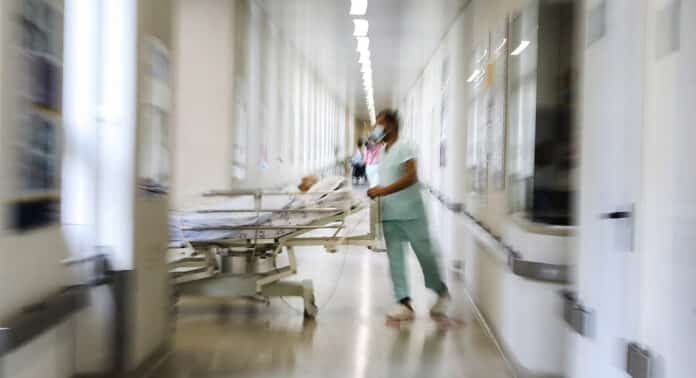PCP accuses executive of “being at service of those who make money out of illness”
Even in its ‘dying days’, Portugal’s minority centre-right government has been busy transforming ‘health management’ in a way that its Socialist predecessors had done away with: PPPs (public-private partnerships) were always part of this outgoing executive’s programme, but the last Council of Ministers paved the way for an ‘unprecedented’ expansion of this model: 174 health centres are to be open to PPPs (this includes the five major Lisbon hospitals always in the news for having problems, and all the health centres attached to them).
All that being said, nothing yet has changed – and it may stay this way, depending on the results of the May snap elections. If PS Socialists are voted in, the likelihood of it forging forwards with PPPs on such a scale is minimal. But there is also a ‘problem’ with private health groups who are not overly excited about returning to the PPP models of the past.
President of the Portuguese association of private hospitals Oscar Gaspar has told Expresso that “private (operators) are saying that if it is like it was in the past, they don’t want it…”
Thus there is still a way to go, and the government has since fallen – so it could all be ‘more sand in people’s eyes’ than anything else.
PCP communists have nonetheless reacted in outrage over the Council of Ministers’ deliberations, claiming the government of Luís Montenegro is “at the service of those who make business out of illness.
“The government is not responding to the problems of the country and people’s lives. On the contrary, it is turning every problem into a business opportunity,” railed PCP leader Paulo Raimundo on the sidelines of a party lunch meeting in Arraiolos yesterday.
“In its 25th hour, the government decided to privatise 174 health centres. That’s almost 20% of all the health centres in our country, not to mention the public-private partnerships (PPP) for five hospitals,” he said, claiming this is “a clear operation (…) at the service of those who, in this case, make a business out of illness, those who have been growing. They are very happy with this government and they wanted this government to continue”.
Mr Raimundo’s point of view is different to that of Oscar Gaspar, who insists that nothing could move forwards in this set of intentions until there is “a lot more” in the way of clarification.
And then there is a damning opinion article, also in Expresso, by Fernando Araújo, the former CEO of the ‘health service directorate’ (created by PS Socialists) who ‘stepped aside’ when the new government took office.
According to Mr Araújo, “after a year of government with the promise of having the solutions capable of changing the SNS (for the better) in 60 days, what has in fact happened is that results in health are worse, there have been no structural reforms and there is even less capacity to attract health professionals.
“The centre of health policies has stopped being the patients (…) today we have a health system that is more expensive, less effective and less transparent.
“Sadly, this has been a mandate characterised by destruction, with the only concrete objective being power for power”.




















